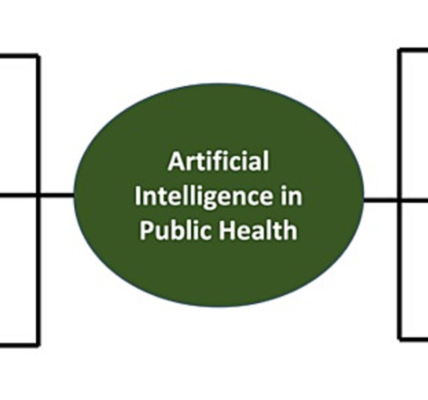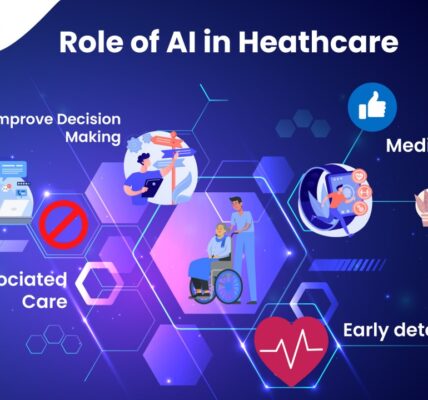Lifestyle medicine focuses on the prevention, management, and reversal of chronic diseases through lifestyle changes, such as diet, physical activity, and stress management. In recent years, artificial intelligence (AI) has emerged as a powerful tool in this field, offering innovative solutions that enhance the effectiveness and personalization of lifestyle interventions. AI’s ability to analyze vast amounts of data, recognize patterns, and provide tailored recommendations has the potential to revolutionize lifestyle medicine. This article explores how AI contributes to lifestyle medicine, highlighting its applications, benefits, and challenges.
Personalized Health Recommendations
One of the most significant contributions of AI to lifestyle medicine is its ability to provide personalized health recommendations. Traditional lifestyle interventions often rely on general guidelines that may not be effective for every individual. AI, however, can analyze data from various sources, such as electronic health records (EHRs), genetic information, and wearable devices, to offer customized recommendations based on an individual’s unique health profile.
For example, AI algorithms can process data on a person’s diet, physical activity, and metabolic markers to generate personalized nutrition and exercise plans. These recommendations are tailored to the individual’s specific health conditions, preferences, and goals, making them more likely to be effective and sustainable. This personalized approach enhances the relevance of lifestyle interventions and helps individuals achieve better health outcomes.
Monitoring and Tracking Health Metrics
AI-powered tools excel in monitoring and tracking health metrics, which is crucial for effective lifestyle medicine. Wearable devices and mobile health apps equipped with AI can continuously collect data on various health parameters, such as heart rate, activity levels, sleep patterns, and dietary intake. By analyzing this data, AI systems can provide real-time feedback and insights into an individual’s health status.
For instance, AI algorithms can detect deviations from baseline health metrics and alert users to potential issues, such as irregular heartbeats or inadequate sleep. This proactive monitoring allows individuals to make timely adjustments to their lifestyle and seek medical advice if necessary. Additionally, AI-driven apps can help users track their progress toward health goals, such as weight loss or improved fitness, and provide motivation and support to stay on track.
Enhancing Behavior Change and Adherence
Behavior change is a central component of lifestyle medicine, and AI can play a vital role in supporting and enhancing this process. AI-powered health apps and virtual health coaches use behavioral science principles and machine learning techniques to help individuals adopt and maintain healthy habits.
These AI systems can analyze user behavior and engagement data to identify patterns and tailor interventions accordingly. For example, if an AI app detects that a user struggles with sticking to a workout routine, it might suggest alternative exercises, set smaller goals, or provide motivational messages to encourage adherence. By offering personalized support and addressing barriers to behavior change, AI can improve adherence to lifestyle interventions and increase the likelihood of long-term success.
Supporting Chronic Disease Management
AI is particularly valuable in managing chronic diseases through lifestyle interventions. Many chronic conditions, such as diabetes, hypertension, and cardiovascular diseases, are influenced by lifestyle factors and can benefit from targeted lifestyle modifications. AI-driven tools can assist in monitoring and managing these conditions by analyzing data from various sources and providing actionable insights.
For example, AI algorithms can analyze data from glucose monitors, blood pressure cuffs, and physical activity trackers to offer personalized recommendations for managing diabetes or hypertension. By integrating data from multiple sources, AI can provide a comprehensive view of a patient’s health and suggest lifestyle changes that are tailored to their specific needs. This approach enhances the effectiveness of chronic disease management and empowers patients to take control of their health.
Facilitating Research and Innovation
AI contributes to lifestyle medicine by facilitating research and innovation in the field. AI-powered data analytics can identify trends, correlations, and causal relationships within large datasets, leading to new insights into the impact of lifestyle factors on health. This can help researchers uncover novel interventions, optimize existing approaches, and develop evidence-based guidelines for lifestyle medicine.
Additionally, AI can accelerate the development of new lifestyle medicine tools and technologies. For example, AI-driven algorithms can be used to design and test new wearable devices, health apps, and digital platforms that support lifestyle changes. By leveraging AI in research and development, the field of lifestyle medicine can continue to evolve and offer more effective and innovative solutions for improving health and preventing disease.
Addressing Challenges and Limitations
While AI offers numerous benefits for lifestyle medicine, it also presents several challenges and limitations. One concern is the quality and accuracy of the data used to train AI models. Inaccurate or incomplete data can lead to erroneous recommendations and undermine the effectiveness of AI-driven interventions. Ensuring data quality and integrating diverse and representative datasets are essential for optimizing AI performance.
Another challenge is the potential for privacy and security issues. AI systems often handle sensitive health information, and safeguarding this data is crucial to protect individuals’ privacy. Compliance with data protection regulations and implementing robust security measures are necessary to address these concerns.
Additionally, AI-driven lifestyle interventions should complement, not replace, traditional healthcare and professional guidance. While AI can provide valuable insights and support, it is essential for individuals to consult with healthcare professionals for comprehensive medical advice and personalized care.
Conclusion
AI is revolutionizing lifestyle medicine by providing personalized health recommendations, monitoring and tracking health metrics, supporting behavior change, and enhancing chronic disease management. Its ability to analyze vast amounts of data and offer tailored insights makes it a powerful tool for improving health outcomes and promoting healthy lifestyle changes. However, addressing challenges related to data quality, privacy, and the integration of AI with traditional healthcare is essential for maximizing its benefits. As technology continues to advance, AI will likely play an increasingly important role in shaping the future of lifestyle medicine and supporting individuals in achieving their health and wellness goals.





